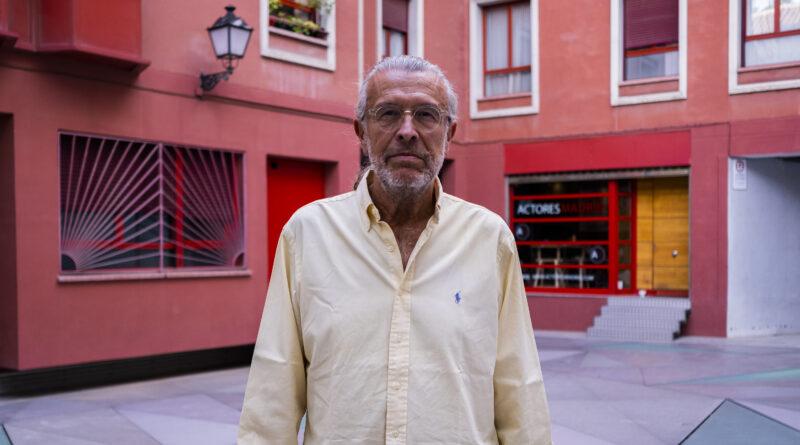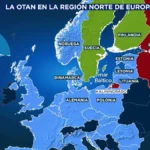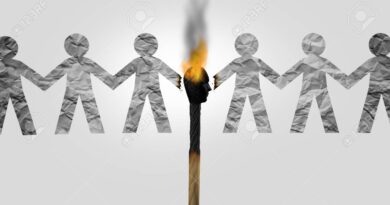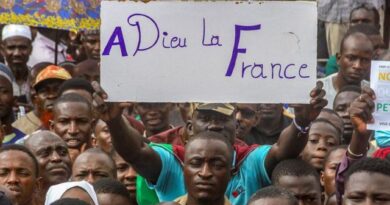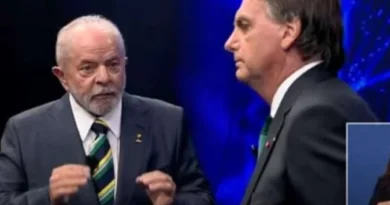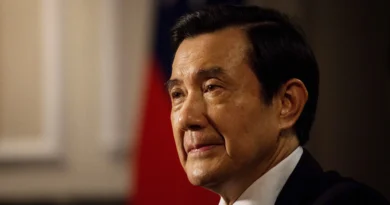Martín Medem: the idea of public service that governed the media has been adulterated
JAYRO SANCHEZ
José Manuel Martín Medem is a veteran Spanish journalist specialized in Latin American information. He was a correspondent for RTVE in Mexico, Colombia and Cuba for a decade and is now a member of its Board of Directors. In 1982, he was awarded the National Human Rights Journalism Award.
We spoke with him about the change in approach proposed by Mexico and Colombia in the fight against drugs and also about the changes experienced by journalism and its conception of public service.
Last September, the presidents of Colombia, Gustavo Petro, and Mexico, Andrés Manuel López Obrador, announced the end of the politics of "war on drug trafficking" during the Latin American Conference and the Caribbean on Drugs held in Cali. Why have they decided to end it?
I don't think they could do it by themselves. From what they said, I understand that they would like the US, which is the one that has been carrying it out for 50 years throughout the American continent, to end it. And that decision can only be made by the Pentagon, Congress, the Secretary of State or the American president. I suppose that the Latin American leaders made this request because, as Petro explained at the meeting, the "war on drugs" has cost Latin America a million deaths in the last 5 decades.
Even if this policy is left aside, both Mexico and Colombia will have
We have to continue looking for a solution to the traffic problem. Since
What approach do you propose to combat it?
They insist on several issues. One of them is to act on the demand for narcotics. They want the US and the European Union (EU) to stop focusing their efforts on killing Latin American coca leaf growers and to dedicate themselves to reducing the number of cocaine users among their own citizens.
Another consists of the adoption of strict measures to control the laundering of mafia profits in the international financial system and the supply of products that are essential for the manufacture of certain drugs. López Obrador also wants Washington to close the routes used by black market traffickers to send weapons to Mexican narco-paramilitary groups across their common border. And Petro makes continuous calls for the US to separate the "war on drugs" from its international policy, remembering the disasters that have already occurred in Vietnam, Central America and Afghanistan.
Finally, both countries demand that the US administrations stop using the excuse of combating drug trafficking to justify their counterinsurgency policy and their links with paramilitary organizations in Latin America.
From what you say, I understand that the presidents' statements represent a
discursive gesture rather than a political proposal. I'm right?
Petro and López Obrador are taking advantage of the new scenario of the second wave of progressive Latin American governments to change the type of relations that the US imposes on the region on many issues, including drug trafficking. They claim that the fight against this social scourge must be shared by both drug-producing and narcotic-consuming countries. And they warn of a new challenge that we will all have to face sooner rather than later: the spread of cocaine consumption to Asia and, more particularly, to China.
The levels of supply and demand for this drug have not stopped increasing throughout
the world in recent years...
Yes. The global population consumes more and more cocaine. At the moment, its two main sales markets are the US and Europe. Even so, the business expands along with the number of coca leaf plantations and laboratories where it is processed. In addition, the purity of the doses also increases progressively.
How could this problem be stopped? Some experts, like the journalist
Italian Roberto Saviano, believe that the only possibility of ending the
drug trafficking lies in its legalization…
There is an old controversy about this idea. It's curious, but the places where it generates the most opposition are the first to adopt it. For example, the United States is the world's leading producer of marijuana and one of the states whose legislation is most permissive with respect to cannabis trafficking.
I'm not sure if legalization would be the solution or not. A specific description of the procedure used to carry it out would have to be made. And, in this sense, the proposal of Latin American governments to approve public health policies aimed at working on prevention and care for consumers seems highly recommended to me.
Would the liberalization approach have greater benefits than that of repression
security and military?
I do not know. But what is clear is that what liberalization should consist of should be detailed. Furthermore, it would have to be accompanied by a public health policy to avoid narcotic crises like the one the US is now experiencing, where the massive use of opioids as pain relievers has caused the death of 500.000 people and a large epidemic. No place in the world has so many deaths from drug use.
One of the main culprits in this situation is OxyContin, the famous drug that made the Sackler family billionaires and that led many people to get hooked on opioids with the excuse of keeping pain at bay in the 1990s.
Currently, an entire illegal fentanyl market has emerged globally. Most of the laboratories where this substance is manufactured are located in Mexico, although its precursor materials come from China.
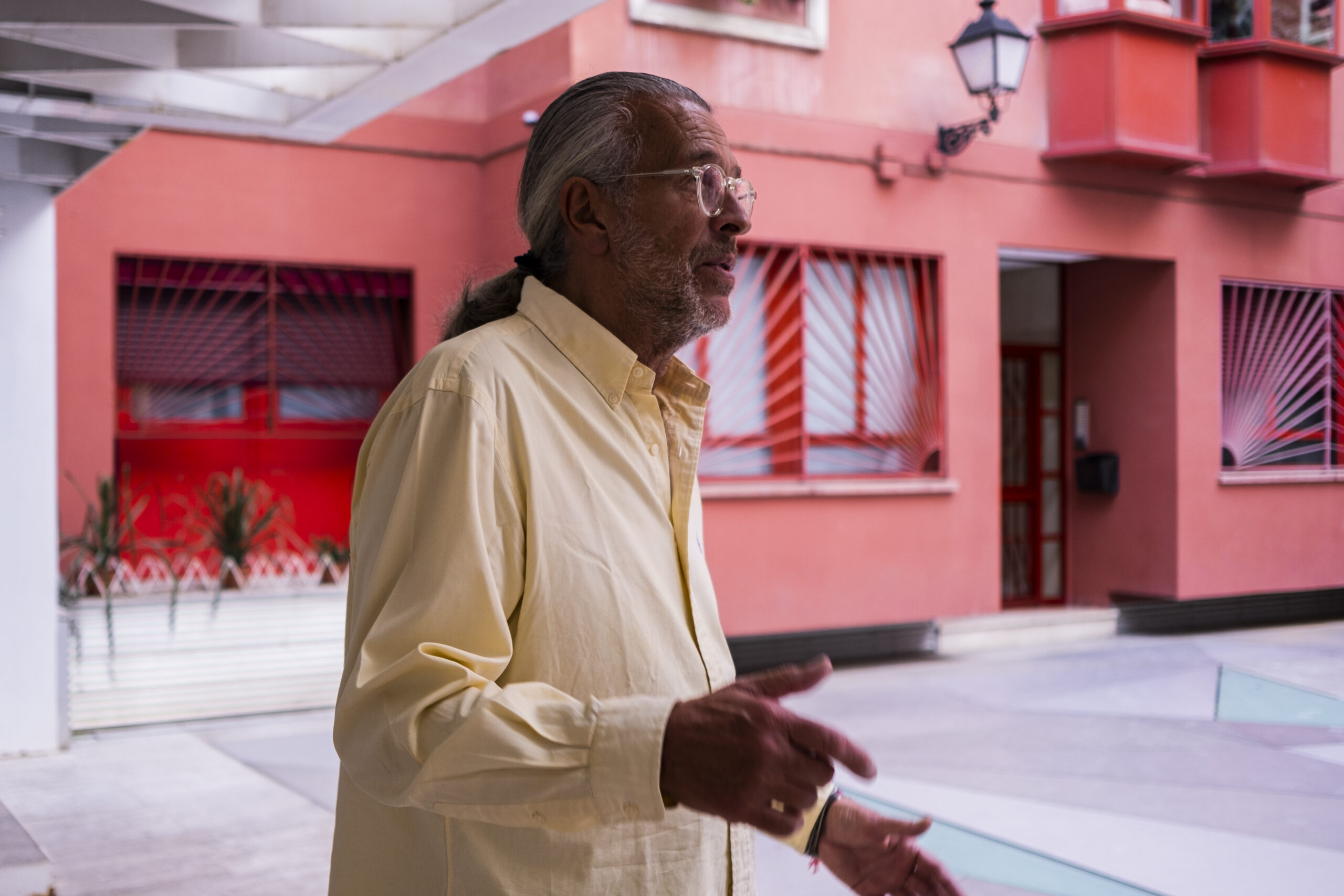
For Mexico, another issue pending solution is the violence and insecurity generated in its territory by the so-called drug trafficking cartels. How are they being dealt with?
The great contradiction of President López Obrador is that, when he won the elections in 2018, he spoke of demilitarizing the fight against these organizations and, however, he has done the opposite. In fact, the strengthening of the Army's presence in the streets has triggered its intervention in other tasks of repression.
Further south, in Colombia, the Petro Government is experiencing a similar situation, since it does not have the parliamentary majority necessary to approve laws that: distribute the land, create jobs or replace coca leaf crops with other types of plantations. . Regarding the issue of paramilitary groups, it must be remembered that their origin can be linked to the coming to power of the US Administration chaired by John Fitzgerald Kennedy, who supported and armed the groups that acted as the private armies of the landowners. and the Colombian ranchers in the early 1960s. Later, these militias would come to control a good part of the country's drug trafficking flows.
The US used cocaine from the Medellín cartel to finance the Nicaraguan "contras" through the Central Intelligence Agency (CIA). And only during the Government of César Gaviria, when Washington had ended its relationship with Pablo Escobar, was it decided to end this organization. To achieve this, the Colombian Police and Army collaborated with the CIA, the US Federal Bureau of Investigation (FBI) and the National Security Agency (NSA), as well as with the paramilitaries. extreme right wing led by the Castaño brothers and the Cali cartel.
In exchange for their support, these last two groups were able to continue with their businesses without anyone bothering them. And that's why Colombia was flooded with narcotics again. In fact, the country's oligarchs are counting on Petro to finish his term soon so they can replace him with someone similar to former President Álvaro Uribe.
For some time now, the "hawks" of the US Republican Party have been urging the launch of their own military operation in sovereign territory to put an end to the drug traffickers responsible for the narcotics crisis in the US. President López Obrador has flatly refused to allow it. Is it possible that there will be a confrontation between both neighbors?
I don't believe it. In Mexico, new forms of political expression are opening up, since the two main candidates for its presidency are represented by women. Whoever wins, will have to consider what solution to apply to a country dominated by "narcomafias."
By the way, their control of the Mexican State apparatus also developed during the presidencies of Ronald Reagan and Miguel de la Madrid, who, as in Colombia, used drug traffickers to arm the anti-Sandinista "contras" in exchange for doing turn a blind eye to his drugs. Cooperation between the State and drug traffickers deepened with the coming to power through electoral fraud of Carlos Salinas de Gortari, who gave freedom to traffickers to sell their merchandise in exchange for maintaining peace in the streets.
However, his strategy did not work for too long. The different organizations divided and began to fight among themselves, so Gortari, his successor, Ernesto Zedillo, and other presidents of the National Action Party (PAN) and the Institutional Revolutionary Party (PRI) made pacts with certain groups and protected them, persecuting only those who gave them the most problems. Mexico entered a spiral of violence and drug traffickers began to generate a large part of its Gross Domestic Product (GDP).
Furthermore, they were the only ones who could provide work for young people, given the loss of jobs caused by the signing of the 1992 Free Trade Agreement between Salinas de Gortari and their American and Canadian counterparts, and they even managed to bribe a large part of the members of the Security Corps and the Armed Forces applying Escobar's famous "silver or lead" policy.
You have been a correspondent for RTVE in Mexico, Colombia and Cuba for 10 years. What are the keys that a journalist should take into account to report well about this region?
It is not easy at all, because the major media no longer invest in the figure of the correspondent. Likewise, Spanish journalists do not have the necessary training to talk about this region, and the public would not know what they are being informed about if they did so. Most of the topics that the media discuss about Latin America have to do with war conflicts or natural phenomena.
Do you think that journalists do our work with the same freedom as decades ago?
It depends on the moment in which we are located. If we compare current freedom with that of the Franco dictatorship, we won by a landslide. But, if we do it with the ruling one after the promulgation of the 1978 Constitution, we lose the game. The paradox is that we should have it to a similar degree. Or even greater, taking into account the emergence of tools such as social networks or digital media. Now, any issue is discussed within 30 seconds of occurring, and it is much more difficult to hide it. Therefore, theory tells us that we should produce better information and that professionals in the sector should be working in more dignified conditions.
However, if we start to think about who the owners of the media are, to what extent they depend on their shareholders or how the idea of public service that governed them has been adulterated, we find that they are quite conditioned. The big problem with all this is that, many times, the best journalists are those who are unemployed or in alternative media. And those who manage to enter the mainstream media do so by paying very expensive master's degrees to private companies and accommodating their pieces to the official line of the story that they are asked to tell.
Jayro sanchez he is a journalist.

